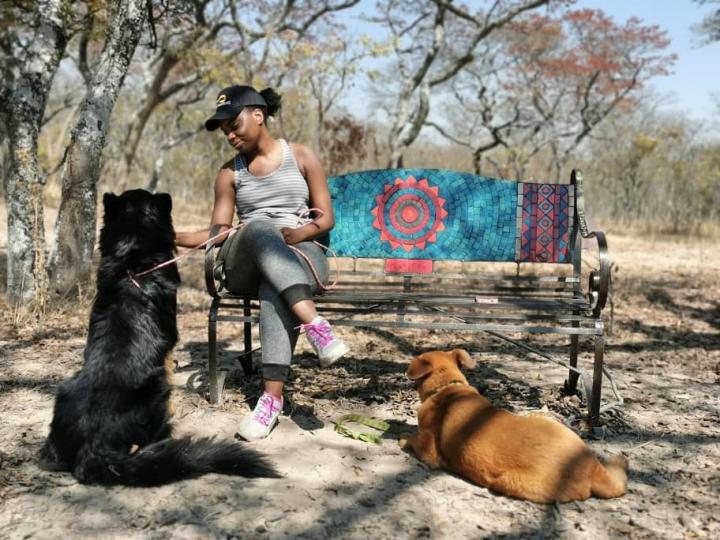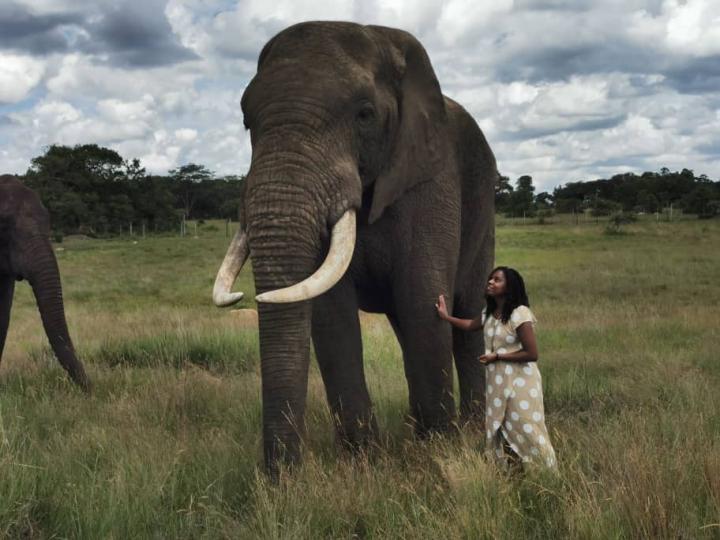Reflections on Racism
Written by Lindiwe Dhlakama. MSc student, Africa And International Development.

Ignorance is bliss- this was true for me for most of my childhood when it came to race and racism and my country’s history with colonization. It was only in retrospect, in my mid to late teens, that I learnt that even though I lived in post-colonial Zimbabwe where the majority of citizens are wonderfully black, I had, in primary school, fallen victim to racism from my white peers on several occasions. I remember being one of only a few students not invited to Katie’s party, and when I asked her why, she said it was because her dogs did not like black people; I remember Lauren pointing to her black helper and saying ‘look, your relative’; and I remember Demi pouring black paint on my arm and telling me not to bother washing it off as I was black already.
As I got older I began to learn, but sadly not through the private school curriculum (which we are yet to decolonize), about the brutal truth of Zimbabwe’s past which I fortunately missed by 14 years- Zimbabwe having gained independence from Britain in 1980. I learned that racism was so real, that one race of people thought it was alright to colonize another race of people, oppressing their rights with systemically racist policies and for most African territories, unspeakable violence. I learnt that Zimbabwe was in this colonized state for very nearly 100 years, which means that millions of people were born into oppression and died before they could experience freedom and a road towards equality. I also learnt that there are many brave and selfless women and men, like my parents, who decided that oppression would not be their children’s portion, so joined a long and brutal struggle for independence.
Thanks to those people, like my father – a war veteran who was imprisoned and tortured by colonialists for his part in the fight towards equality and freedom for all - I get to live in a country where I do not fear for my life just because of my melanin. However, trauma is hereditary and as psychologist Dr Nicole LePera says, ‘The effects of racism exist in blood and bone’. This is perhaps the reason why many of my peers and I are sensitive to injustice in all its forms. And perhaps the reason why my heart broke for George Floyd and all the other people killed just because of the color of their skin.

I came to the UK to study Africa and International Development. Before I arrived in the UK however, I was worried about living in a place where I am in the racial minority, living in the place where, perhaps, racism originated hundreds of years ago. News of a racially motivated attack of an Asian student at my university unsettled me and whilst it would be absolutely wrong and daft of me to see all white strangers as a threat, I cannot help but wonder, when some of their stares linger, if they think less of me or if they wish me harm.
One of my professors recently said to me that racism became more of a reality for him after he had his child. It is one thing to put up with systemic racism against oneself. But when you think of your children and the generations of loved ones who will come after you, you cannot help but hope for and work towards a truer and more equal future for them, so that, just as I and my peers do not have to fight liberation wars, our children will not have to witness and hurt from the same racist people and structures that exist today. There are many people of all creeds and colour, many movements and organizations and activists fighting and working toward a more equal future. I, like most other people of colour have, simply by being born, been involuntarily thrust into this particular fight. I, and many others, grow weary every so often from having to justify our existence, yet we also often feel that we are not doing enough.
In a moment of despair at the news reporting yet another black person killed, I realized that the best form of activism, that we can all do, is to be unapologetically ourselves. That way, the world will see us and wonder at our audacity to be equal to them, our audacity to be resistant to injustice, and our audacity to make the world beautiful. And equal.

